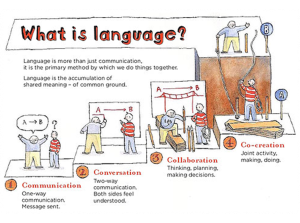It seems as if every pastor at one time or another dreams of planting a church. I, too, had thoughts of church planting at one point and who knows…it may still happen! But, it is the conversations about church planting that led me to really imagine what it means for God’s Kingdom to be reality on earth as it is in heaven. Below you will not find my words. Below you will not see my short film. Below you will discover the beauty of theological expression from one theologian who considers the theological practice of ministry his art form. Below you will experience one filmmaker’s attempt to give expression to God’s mission on earth as it is in heaven. Both the words and the film come from years of imagining with friends, theologians, colleagues, and other practitioners, about what is meant by the Kingdom of Heaven found in the Bible. To me the Kingdom of Heaven is the essence of what is hoped for by the follower of Christ (Hebrews 11:1). Below may you see one expression of evidence of that hope.
The following was first published in October 2013 on the Virginia Baptist Mission Board Blog.
Art + Justice + Mission = Mission Possible VA
The following is a guest post from Josh Hayden, Associate Pastor to Students & Creative Technologies at Cornerstone Baptist Church in Warrenton, VA. We heard about Mission Possible VA and asked Josh to share more about this unique event.
What if injustice exists not because of a scarcity of resources but a lack of imagination?
Artists have a unique way of showing us what they observe in the world by helping us to see what they see, to hear what they hear, and uncover a new perspective by shining the light at a different angle. Artists are great truth-tellers, helping us to hear the cries of the oppressed through song, showing us the brokenness of sexual exploitation through painting, or systems of injustice caused by slavery through film.
There is power in holding up a mirror to the world and bringing what is going on all around us into plain sight through the strokes of a paintbrush, a steady beat of a drum, or the texture of a film.
Artists help to show us, not just tell us, what is actually taking place in the world, even when it is uncomfortable.
If artists help provoke our imagination, then an exploration of the biblical injunction to do justice is a second catalyst for systemic change. When Jesus taught us to pray, we learned that we are to pray that the kingdom of God would be on earth as in heaven.
As we do justice—set the oppressed free, loosen the chains of the slaves, release the captives—we participate in the new creation that comes down from heaven to make earth new.
At Mission Possible VA, speakers, storytellers, artists, musicians, and filmmakers will help connect the grand narrative of God’s story—which bends towards justice—to the call on every Christian’s life to ask what does biblical justice look like in 2013?
Like many different strands of rope coming together to make a stronger cord, the mission of God is made real through a community of people with a shared imagination for a changed world. The combination of insights from artists and the guidance of scripture lead to a sense of collaborative and shared mission.
By highlighting the work and stories of people on the ground in Newport News, VA, e.g.First Baptist Church Newport News, Christopher Newport University International Justice Mission Chapter, Virginia Beach Justice Initiative and The Network for Theological Education, along with people like Chris Folmsbee and organizations like International Justice Mission on a larger scale, a renewed scope of mission can be revealed. The mission of God includes all of us, and the telos (end goal) of the mission is that all creation is restored and redeemed.
While it may seem like there is a scarcity of resources, the good news is that there is a God of super-abundance who has promised that all things will be made new. The question is: are we willing to let God stir up our imaginations?
So, on November 2 in Newport News, VA, students, young professionals, and anyone trying to participate in the mission of God to renew all things are invited to a creative conference where art is connected to justice and the overall mission of God.
People will gather to help answer one question:
How can we join in the mission of God to restore the world to its intended wholeness?
There are two plenary gatherings, with breakout sessions, interactive worship experiences (i.e. opportunities to engage in film, prayer, stories, and art as a means of reflection and response), all wrapped up with a closing concert. The day is laid out to provide opportunities for conversation, listening, reflection, worship, questions, hope, and learning.
If you are wondering who is invited to Mission Possible VA, well, you are! Check out a film interpretation of Mission Possible by one of the featured collaborators, Katy Andres, and hope to see you and your church at Mission Possible VA on November 2 in Newport News. We are all invited to help make the connection of:
Tom Lynch lives in Henrico, VA with his wife and two children. He is a full-time Master of Social Work student at Virginia Commonwealth University with a focus in Administration, Planning, and Policy Planning. He works as the director of ministry rotations for the John Leland Center for Theological Studies. He holds a master of divinity from the Leland Center and a bachelor’s in communication from Michigan State University. He volunteers as a justice advocate for International Justice Mission and serves as the Vice President on the board of trustees for The Network for Theological Education.





